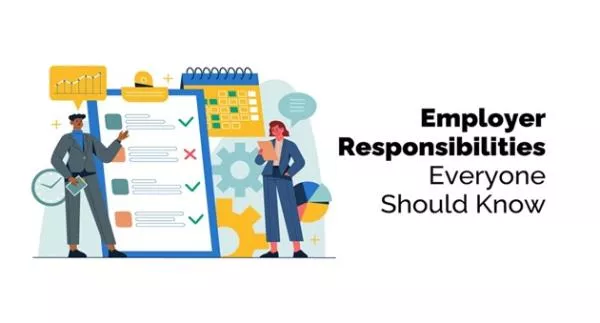Employer's Legal Duties and Responsibilities
When an employee files a sexual harassment complaint under the POSH (Prevention of Sexual Harassment) Act, 2013, the employer has a legal duty to ensure a fair investigation and take appropriate action.
Many companies fail to handle POSH complaints properly, leading to lawsuits, reputation damage, and legal penalties. Employers must:
- Investigate complaints quickly and fairly.
- Ensure a safe and harassment-free workplace.
- Take strict action against offenders.
- Follow all legal obligations under POSH.
This guide explains what a company must do after receiving a POSH complaint and the legal consequences for failing to comply.
Acknowledge the Complaint Immediately
Once an employee files a written complaint, the employer must:
- Acknowledge receipt of the complaint within 7 days.
- Ensure the victim's identity remains confidential.
- Inform the Internal Complaints Committee (ICC) to start the investigation.
Example: If an HR manager receives a sexual harassment complaint but ignores it, the company can be fined under POSH laws.
Forward the Complaint to the Internal Complaints Committee (ICC)
Every company with 10 or more employees must have an ICC to handle POSH complaints.
- The ICC must begin the inquiry within 7 days.
- The harasser must be informed and given a chance to respond.
- Both parties must be treated fairly no bias or victim-blaming.
Example: If an employee complains about inappropriate behaviour from a colleague, the ICC must initiate an inquiry immediately.
Ensure a Fair and Confidential Investigation
- The ICC must interview the complainant, accused, and witnesses.
- All conversations and documents must remain confidential.
- The investigation must be completed within 90 days.
Example: If a company fails to complete an investigation within 90 days, the victim can escalate the case to a labour court.
Provide Protection to the Complainant (If needed)
During the inquiry, the employer must ensure the complainant feels safe at work. This includes:
- Transferring the accused or victim to another department.
- Granting the victim special paid leave (up to 3 months).
- Preventing retaliation against the complainant.
Example: If a woman reports harassment from her supervisor, the company should transfer her or place the accused on suspension.
Take Strict Action Against the Harasser (If Found Guilty)
If the ICC finds the accused guilty, the employer must immediately take disciplinary action, which may include:
- Written warning or suspension.
- Salary deduction as compensation for the victim.
- Demotion or job termination.
- Legal action under IPC laws (for serious offences).
Example: If a senior manager sexually harasses a junior employee, the employer must terminate the harasser or take strict disciplinary action.
Implement the ICC's Recommendations
The employer must follow the ICC's final decision within 60 days. If the company fails to act, the victim can appeal in labour court.
Example: If an ICC recommends terminating an employee for repeated harassment, the employer must enforce the decision or face legal consequences.
Prevent Retaliation and Ensure a Safe Work Environment
The employer must protect the complainant from revenge actions like demotion, salary cut, or job loss.
If retaliation happens, the employer can face legal action under labour laws.
Example: If a woman is fired after filing a POSH complaint, she can file a case for wrongful termination.
Report POSH Compliance Annually
Every company must file an annual POSH compliance report with the District Officer.
The report must include the number of cases received, resolved, and actions taken.
Example: If a company fails to submit an annual POSH report, it can be fined for non-compliance.
What Happens If an Employer Ignores a POSH Complaint?
Companies that fail to follow POSH laws can face strict penalties, including:
- ₹50,000 fine for first-time violations.
- License cancellation for repeat offences.
- The court orders to pay compensation to the victim.
- Blacklisting from government contracts.
Example: In 2021, a leading Indian company was fined for failing to take action against workplace harassment complaints, damaging its reputation.
POSH Compliance Checklist for Employers
- Set up an Internal Complaints Committee (ICC).
- Acknowledge complaints and start an inquiry within 7 days.
- Ensure a fair and confidential investigation within 90 days.
- Take action against the harasser if found guilty.
- Follow all ICC recommendations within 60 days.
- Submit an annual POSH compliance report.
Conclusion: A Company's Responsibility Under POSH
- Employers must handle POSH complaints seriously and act quickly.
- A safe workplace benefits both employees and the company.
- Ignoring POSH laws can result in heavy fines and reputational damage.
- Companies must create a culture of zero tolerance for harassment.
A harassment-free workplace is every employee's right. Share this article to spread awareness!
FAQs on Employer's Duties Under POSH
- What if my company does not have an ICC?
You can report the case to the Local Complaints Committee (LCC) in your district. - Can an employer refuse to act on a POSH complaint?
No! If an employer ignores a complaint, they can be fined or taken to court. - What if the harasser is a senior executive?
POSH applies to all employees, including CEOs and managers. The company must still take action. - What happens if the ICC gives a weak punishment?
The victim can appeal in high court.

Comments